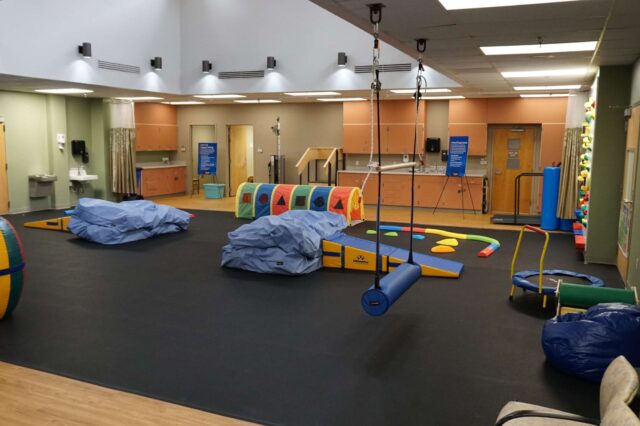Our team of licensed psychologists provide evidence-based autism assessments and actively consult with the CAN transdisciplinary team.
What does a psychologist do?
Comprehensive Autism Diagnostic Evaluation (CADE)
A CADE is a thorough assessment used to determine if an individual meets diagnostic criteria for autism spectrum disorder (ASD) and to better understand an individual’s strengths and challenges. The psychologist typically interviews the caregiver or individual regarding symptoms, development, and functioning across settings, uses a variety of assessment tools, and observes the individual’s social interactions. For each individual patient, the psychologist then creates a set of recommendations based on their assessment.
Feedback on diagnosis
The psychologists will conduct a feedback appointment with you, where they will discuss you or your child’s diagnosis. You will receive the report from the CADE, which will include testing results, you or your child’s diagnosis, as well as recommendations for creating a plan of care.
CAN transdisciplinary team members
Every Friday, the CAN transdisciplinary team (a team that includes many professionals from different disciplines that coordinate patients’ services) meets to discuss patients and receive input on the plan of care moving forward.
Psychotherapy
Psychotherapy is therapy where you meet with a psychologist to discuss you or your child’s thoughts, feelings, or behaviors. The psychologist will support you by working together to come up with strategies to change behavior, increase happiness, and overcome problems. Specifically, this service is individualized and offered to adults and caregivers of children on the autism spectrum.
Family resource meetings
After receiving a diagnosis of ASD, it is important to identify resources that are available to you and coordinate those services. The family resource meeting is an opportunity for individuals and their families to meet with a psychologist, psychiatric nurse practitioner, patient navigator, and a representative from UF CARD. Here, specialists work with patients and their families to identify available resources ask questions.
Brief behavioral consultations
The Brief Behavioral Consultation (BBC) is a 6-session telehealth service provided to caregivers of toddlers. This program focuses on a combination of skills development for the toddler and caregiver mental health. Skills taught to caregivers during the BBC program focus on either increasing the quality of caregiver-child communication or helping with behavior management. The BBC also focuses on caregiver mental health, addressing their wellness, particularly working on self-care. BBC was developed as a response to COVID, specifically to help families while there are waiting for services (rehab, ABA, etc.). These sessions are facilitated by a behavior analyst and a mental health provider.
Psychology frequently asked questions
Will my insurance cover an autism evaluation?
Prior to your evaluation, we recommend contacting your insurance company to review your policy’s benefits and asking if “an evaluation for an ASD diagnosis” is covered. Insurance plan benefits may vary in their diagnoses and evaluations covered.
What is the typical length of an evaluation?
Evaluations vary in length. In general, for children 5 and under, an evaluation takes between 2-4 hours. For older children and adults, the evaluation process can take from one half to a full day. For a more specific time estimate, ask the scheduler when booking your appointment.
Where do these psychologists provide services?
When you schedule your evaluation appointment, you will receive directions to where your evaluation will be conducted. Locations vary based on the psychologist conducting the evaluation. However, they are either conducted at the CAN location or at another UF Health location in Gainesville.
Who will be involved in the evaluation?
Depending on the location and/or the psychologist conducting the evaluation, the team might consist of psychologists, graduate students, interns, and post-doctoral fellows. Any trainees involved in the evaluation are working under close supervision of one of the team’s licensed psychologists.
What is evidence-based assessment?
There are many different ways an individual can receive an ASD diagnosis. To be “evidence-based,” means that this diagnostic tool was developed based on conclusions drawn from research that proves it is accurate and reliable. The CADE is evidence-based.
